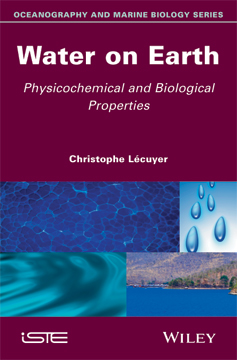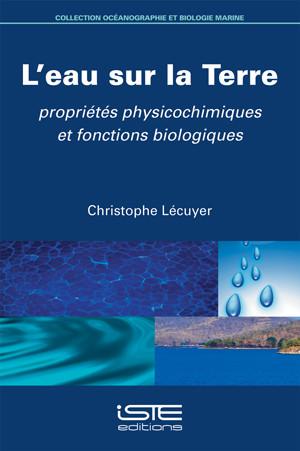
The presence of water on Earth is discussed in this book using various theories about its origin as a basis. These theories include a massive degassing of the primitive parent bodies that built our planet as well as a late addition from comets that collided with the Earth’s surface. The extraordinary physico-chemical properties of the […]
The presence of water on Earth is discussed in this book using various theories about its origin as a basis. These theories include a massive degassing of the primitive parent bodies that built our planet as well as a late addition from comets that collided with the Earth’s surface. The extraordinary physico-chemical properties of the water molecules, combined with its abundance and distribution over the Earth’s surface, have contributed to regulating the global climate and favoring species’ evolution for more than 4 billion years. The early emergence of life in the deep ocean and its further diversification were closely linked to the global water cycle whose dynamics result from the energy balance between solar radiation and the internal heat flux of the Earth.
Chapter 1 of this book deals with the extraordinary physico-chemical properties of the water molecule while Chapter 2 provides insight on theories regarding the origin of water on Earth. In the third chapter, the author focuses on the chemical composition of the main water reservoirs of our planet. Chapters 4 and 5 discuss water’s relationship with plate tectonics and life, respectively. The sixth and final chapter uses stable isotope tracking to look into the water cycle and past climates.
1. Water: A Molecule Endowed with Extraordinary Physicochemical Properties.
2. Theories about the Origin of Water on Earth.
3. The Main Water Reservoirs on Earth and their Chemical Composition.
4. Water and Plate Tectonics.
5. Water and Life.
6. Stable Isotope Tracking: Water Cycles and Climates of the Past.

